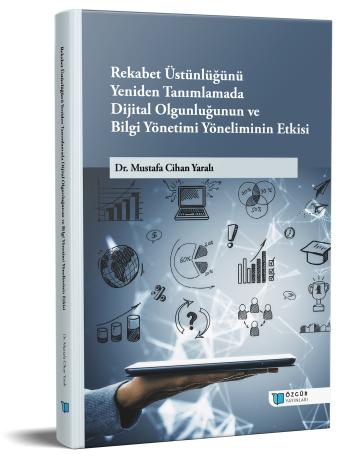
The Impact of Digital Maturity and Knowledge Management Orientation in Redefining Competitive Advantage
Synopsis
In today's business world, digital transformation has become one of the most critical factors determining the competitiveness of businesses. The rapid advancement of technology and the proliferation of digitalization across all sectors necessitate that businesses adapt to this change. In this process, organizations that have reached digital maturity gain a significant advantage over their competitors thanks to their innovative approaches and data-driven decision-making mechanisms. However, the success of digitalization is not limited to technological infrastructure; it also requires support with an effective knowledge management strategy.
This book examines the impact of digital maturity on the competitive advantage of businesses and examines the mediating role of knowledge management orientation in this relationship. By presenting a comparative analysis with the literature, as well as the theoretical foundations and conceptual framework, the study aims to guide businesses on their digital transformation journey.
I would like to thank the consultant, Prof. Dr. Korhan KARACAOĞLU, and the academics who contributed to the preparation of this book. I am especially grateful to all the contributors who enriched this work by sharing their knowledge and experience. I also extend my gratitude to the authors of pioneering studies that have facilitated our understanding of the dynamic nature of digital transformation.
We hope this book will be useful to academics, students, and business managers who want to understand the impact of digital maturity on competitive advantage.

